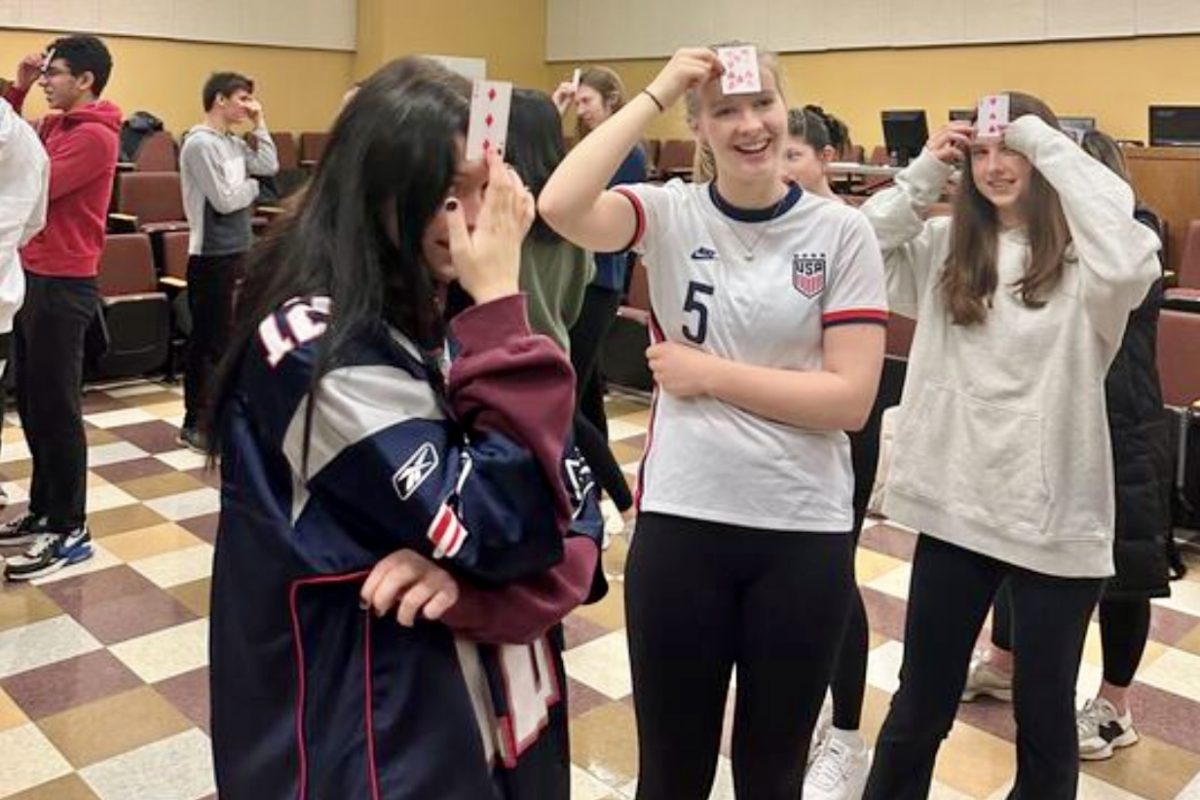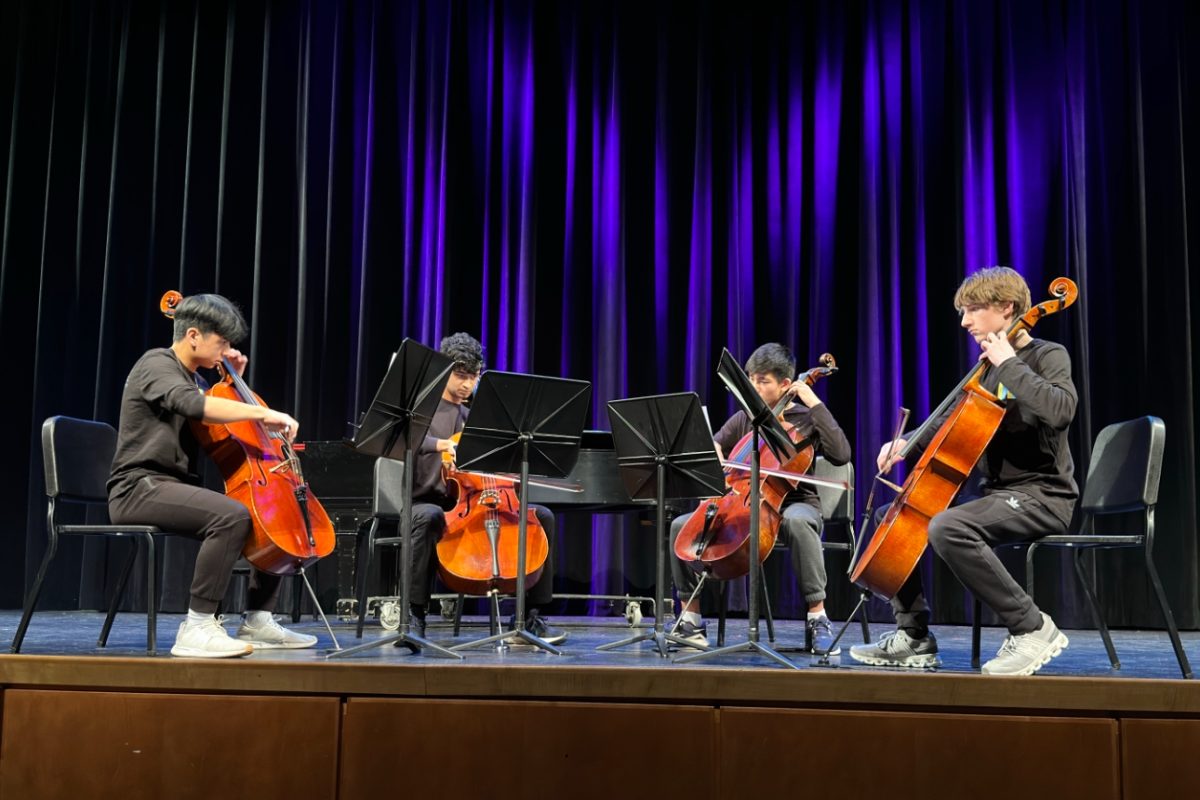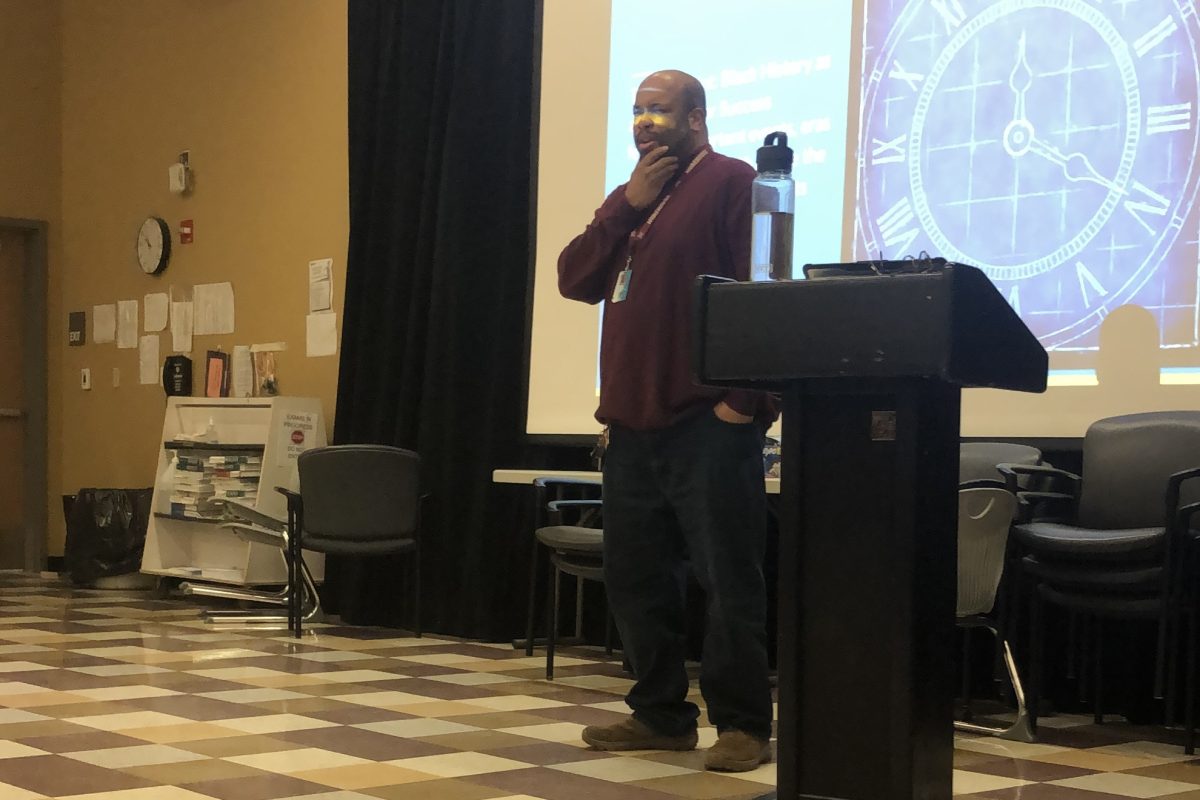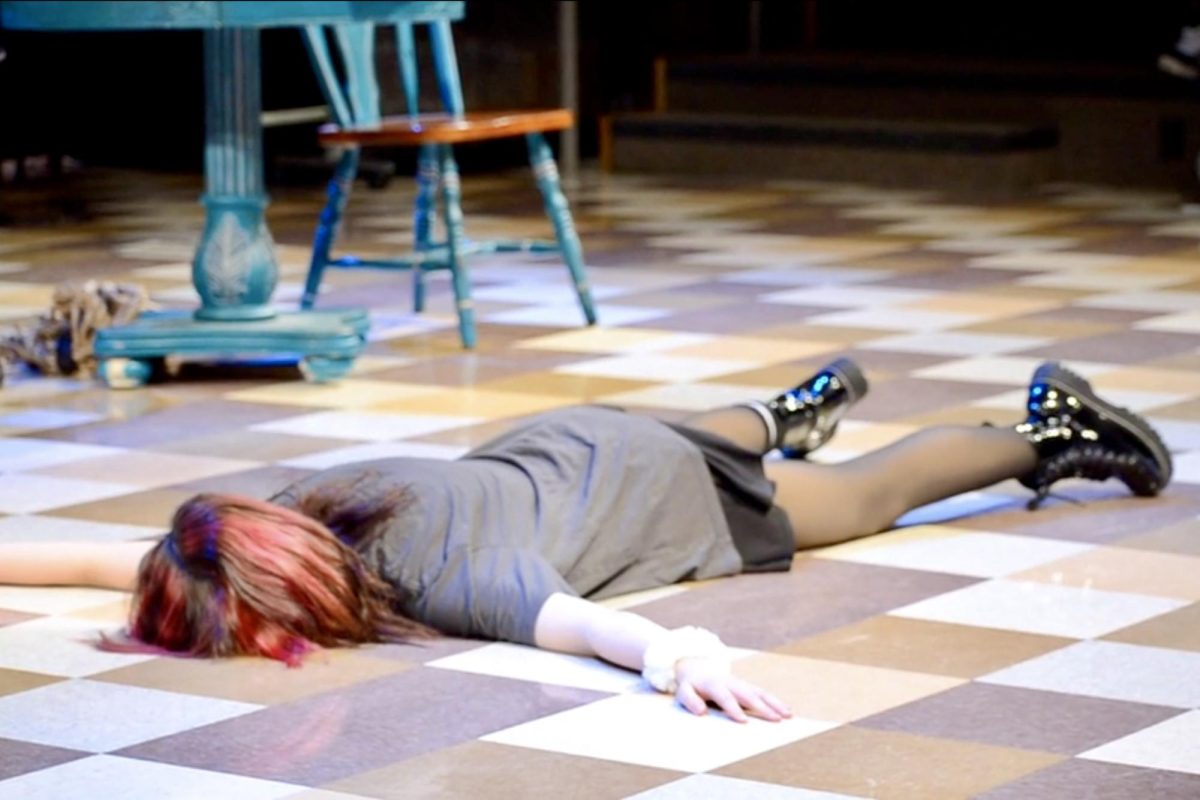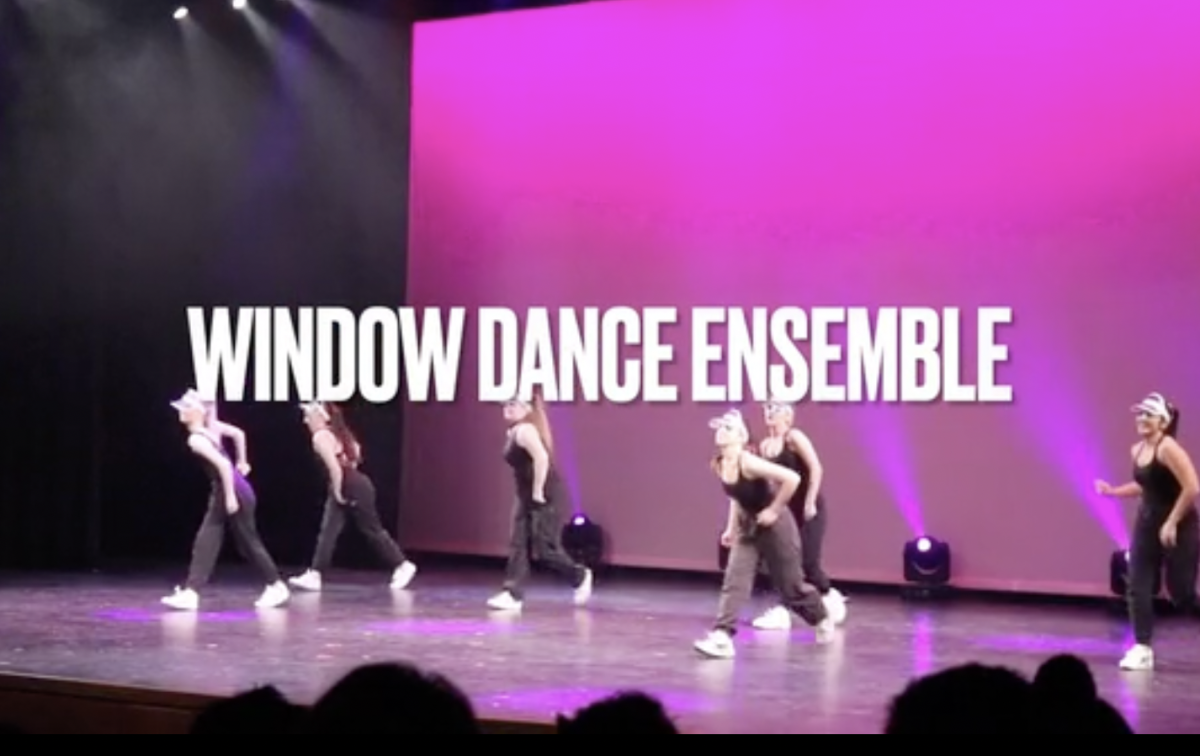On Thursday, Feb. 1, Wayland Cares director Jason Verhoosky led an interactive presentation on the importance of being non-judgmental, and demonstrated how stereotypes and stigmas influence our perceptions of other people.
Wayland Cares is a local organization whose purpose is to educate youth in the town on the importance of healthy decision making. Wayland Cares teaches Wayland residents about a multitude of topics that range from relationships, substance use and more. The organization visits and helps in wellness classes at WHS and also provides clinical help and therapy on the Youth and Family Services side.
“We do work with Mr. Berry and the SADD chapter, so if you want to get further involved, you can be a part of that,” Verhoosky said. “If younger kids are reading this in any capacity, we have a youth group at the middle school on Tuesday afternoons.”
The presentation opened with Verhoosky calling out the word alcoholic. They asked the audience to shout out whatever came to mind when they heard that word. The students in the audience were told that they should put their true feelings aside and be as judgmental and stereotypical as possible. After doing the same thing for a couple more labels, Verhoosky explained that while judgment is normal, it can also be potentially damaging, especially because a lot of judgment stems from things you hear about someone and not your first-hand experience.
“I love the concept of having interactive activities where you have a little bit of fun [and] some gameplay,” Verhoosky said. “Hopefully something sticks with you more at that point in time.”
Afterward, every audience member was given a random playing card that they were instructed to not look at and hold on their foreheads. Students were told to walk around the room and treat people based on the rank of their card, with ace being the highest and two being the lowest. After about five minutes, participants were asked to line up in order from lowest to highest, which they seemed to do with ease. Students were then asked how they were treated by their peers. Some with lower cards said that they felt ashamed and were treated poorly because of their “low status.” On the other side, some students with higher cards reported messages of praise from their classmates.
“I thought the card activity was a good way to get people to mingle and engage with the presentation,” senior Sophie Roman said. “They also helped me to see how much stigma can affect people. Overall I thought the presentation was enjoyable and informative.”
Later on in the presentation, students were again given a random card and were told to mingle with the rest of the participants. The only difference was that they couldn’t say anything about their classmate’s card and were instructed to just have a normal conversation. The goal of this activity was to show students that despite the status or popularity of a person, everyone should be treated the same and without judgement.
“I hope that the main takeaway from this [activity] is that people really perceive how they treat other people and where they get their values,” Verhoosky said.
To see more Winter Week 2024 content, click here.

























